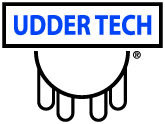"Grab this trailer door!" my husband yelled to our daughter as we all dislodged ourselves from the two-door pickup, front seats pushed forward, careful not to entangle a boot in the coil of rusted chain on the floor. One by one he untied lead ropes from inside the trailer and led four horses out. The wind played at switching directions, a rapid burst and with a force to make the trailer door swing closed, had our daughter not been committed to her job.
Horseshoes made a “clomp, clomp” thud as each was led out, tail swishing, to its parking spot to be saddled. The trailer door creaked as it swung closed, my husband driving a shoulder into the latch to force it to catch.
"Dad, which saddle blanket do I use?" Our daughters love horses and the accessories one needs for their care and enjoyment. Horses need a lot of accessories, almost as many as little girls. Each of them learned, from a very young age, the difference between a snaffle bit and a roller bit.
Also ingrained in our children was the difference between shouts of anger and the yelling necessary to get the job done. However, sometimes when working with cattle, the two merge. Between the wind, the mooing (which tends to sound more like strangled growls when the herd feels threatened) and the strategic positioning of the horse in relation to cow and gate, it's impossible to hear what anyone is saying when it comes time to seek greener pastures. I have often thought that a pre-cattle-drive briefing would help us confirm in what direction we planned to go, and more importantly, where is the gate?
To their credit, the cows and their happily suckling calves must think we are ridiculous for ruining a perfectly blustery morning, yelling "Hey cows! Get up! Weehoo! Yawyaw!"
One can almost forgive their confusion and obstinance then, when things go south. Not literally, although it could be that direction they charged toward – the wind has me confused.
That's why I am also unsure if he's shouting to "go around," or is it "hit higher ground"? I'm at a slight disadvantage, as I prefer to rely on the soles of my own two feet, which puts my ears considerably lower than his horseback-shouted instructions. I decide to pick a side, as it seems our old border collie, Pippin, seldom gets scolded for staying out of the way.
Being scolded during these family excursions makes me feel even worse than not knowing the difference between a lasso and a lariat, or if there even is one. As much as I know that this ranching life encourages our children to develop the qualities we value – a great work ethic, the ability to endure discomfort, the ritual of chores and the creatures' dependence upon your commitment to them – I can't help but feel like an outsider.
"Mom, that calf is turning back!"
Jittery legs carrying a sleek, black-bodied calf, its nose wet and tail twitching as it searches for the mother who had charged ahead, seeking space between the shouts and itself.
"Come on, little guy, let's go this way," I coax, gently guiding him back to the herd. My dad yelling "Tori Ona!" at the dog he and my mom spoil when my girls aren't around comes to mind. It's Basque for "come here" and must sound a lot like something his mom, my grandma – a full-blooded, determined and resilient Basque woman – would yell as she and her sisters, and later her husband, trailed behind the family's sheep, herding them across landscapes not unlike the one we now battled. Maybe it's a little genetic, then, my channeling of the energy and persistence Grandma so brusquely applied to her life, that I prefer to trudge behind the herd, usually lucky enough to avoid the cows' kicks but seldom agile enough to miss stepping in their patties.
In years past, I spent time on horseback during these cattle drives. It was a study in micro-multitasking. So much energy and thought was consumed by my efforts to sit in the saddle, point my toes outward in the stirrups, one hand holding the reins, tuck elbows in, don't let that horse trot, make that horse walk, keep up with the herd, make that horse walk, don't let that horse eat, lower your reins and give him his head, don't let that horse run off with you, that very little focus could be placed on the cow-moving job at hand.
A barrage of commands, given in the form of instructions intended to be helpful and yet delivered as yelling, had, over the years, stripped me of the desire to be horseback. That and the helpless feeling that comes from actually having a horse run off while I futilely pulled back on the reins, him jumping the ditch just the same, flinging me out of the saddle, and me yelling, "Whoa horse! Whoaaa!" ![]()
Ami Bennett was born and raised in southern Idaho, where she lives today with her husband, four children and four dogs in Gooding County.
PHOTO: A lone, straggling calf enjoys the last rays of sunset on the Idaho high desert. Photo by Ami Bennett.






